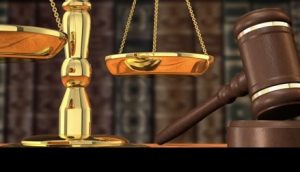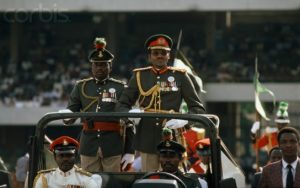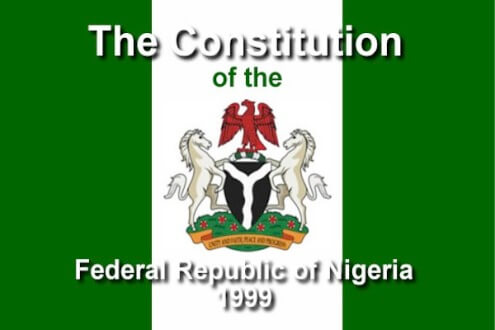The citizen of every nation is very important to that nation. There are certain rights and privileges that are only available to citizens of a country. Thus, every nation has Read More…
Posted on Written By Olanrewaju Olamide
The citizen of every nation is very important to that nation. There are certain rights and privileges that are only available to citizens of a country. Thus, every nation has Read More…

The last military head of state before the present fourth republic was Abdulsalam Abubakar. The military government — in handing over to civilians — created the present 1999 Constitution. This constitution is Read More…

Civilian rule which started in 1979 was short-lived due to the perceived corruption of the civilian politicians. It was this atmosphere that encouraged the Nigerian military, under General Muhammadu Buhari, to take over power from the civilians on 31 December 1983. This period of Nigerian Read More…
Nigeria was ruled by the military from the years 1966 to 1979. After this period of military rule, the second republic was ushered in. The second republic was Read More…

When a lot of people think about military governments, what comes to mind is an authoritarian and dictatorial government that would not tolerate opposition. One of the possible means of opposition to a military government is in the form of the judiciary. In order to prevent the judiciary from reviewing its actions, the military makes use of ouster clauses. An ouster clause is Read More…
The judicial powers of the federation shall be vested in the courts which are established by the constitution;S.6(1) CFRN. These include the power to adjudicate between individuals and between persons and the government s. 6(6). It also extends to interpretation of the constitution (ibid: s. 231(1)). In all, the decision of the court, especially the Supreme Court is final and binding on all authorities and persons in the federation except in Read More…
The legislature is the representative of the people. This is because it is elected by the people from all areas of the country. The primary functions of the legislature is to make laws. These bills are usually private or public bills, but most of the bills usually originate from the executive. The house of representatives is made up of 360 members while the senate has 109 members as provided for in SS.48 & 49 CFRN 1999 as amended.. Together they are referred to as the national assembly as provided in S.4(1). Their primary function is to make laws for the peace, order and good government of the federation in relation to matters in the exclusive list as provided in S.4(2). The national assembly also has the power to legislate on items in the concurrent list as provided for in S.4(4)(a) of the constitution. However, in doing this, the security and welfare of the people shall be the primary focus. S.14(2)(b). Read More…
EXECUTIVE POWERS
The constitution makes the president the chief executive and commander in chief of the armed forces in S.130. The constitution of 1999 vests all the executive powers of the federation in the person of the president which can be exercised directly by him or his vice president or members of his cabinet. S.5(1)(b) provides that the executive powers of the president extends to the maintenance of the provisions of the constitution, acts of the national assembly and on items on which the national assembly has power for the time being to make law. Read More…
The doctrine opines that the three main department of government, not only be separated into three distinct functional departments, but must also be each managed by different and distinct personnel
It would be erroneous to say that separation of powers is a contemporary phenomenon. It can be argued that evidence of separation can be found in manuscripts as old as the Bible and the Quran. In the Bible, Read More…
The importance of a constitution in any given society cannot be overemphasized. The constitution, in Nigeria’s situation, is the supreme law of the land which all acts of individuals and of parliament must not contravene. It is the fundamental and organic law of a nation or state that establishes the institutions and apparatus of government, defines the scope of governmental sovereign powers, and guarantees individual civil rights and civil liberties. Read More…
Join an online course that makes it easy for you to get A’s in your law exams, you can check it out here: Get Access to Ace LL.B Exams.